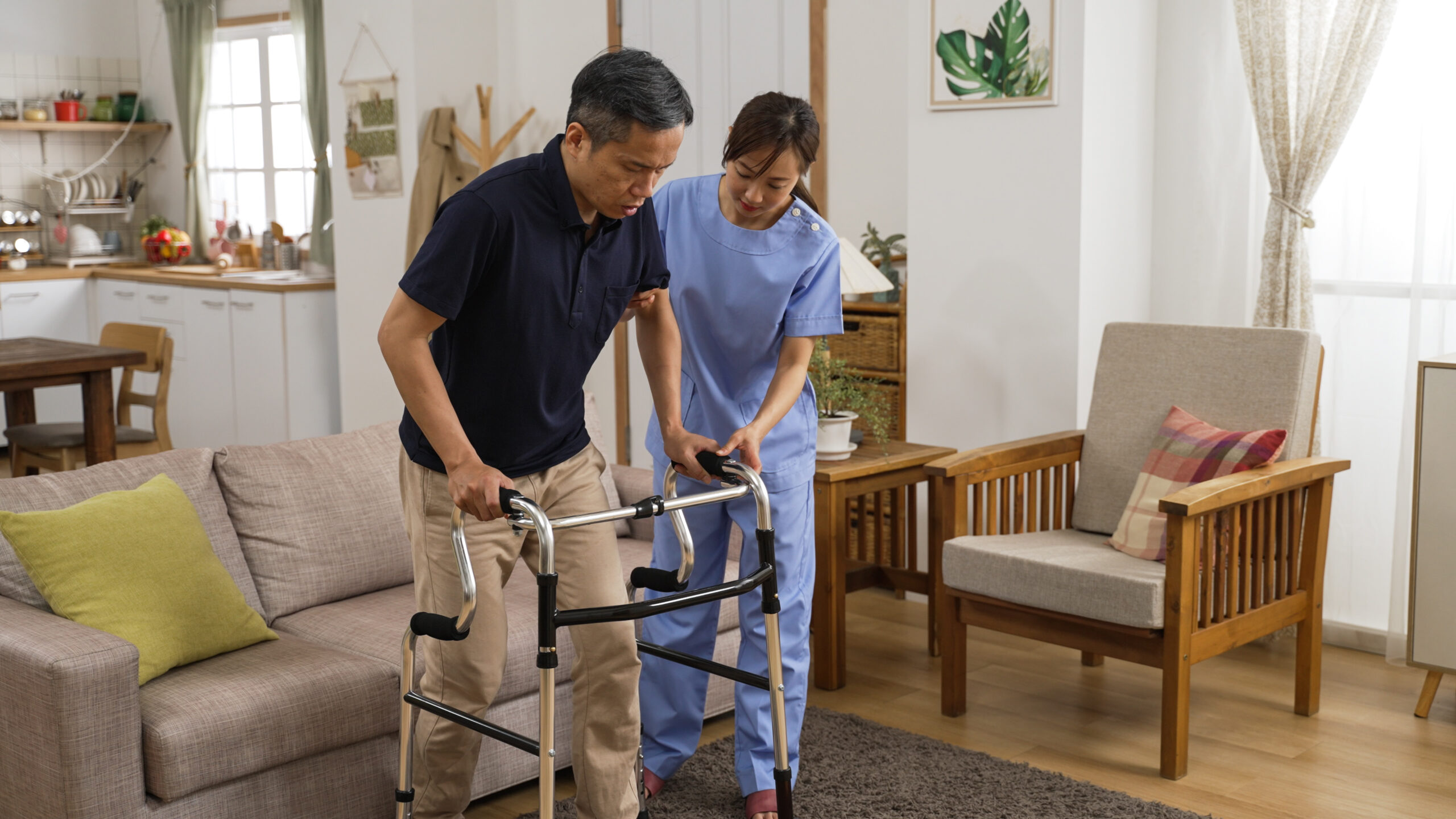
Stroke is a leading cause of disability and death in the U.S. If a loved one has had a stroke, you may be facing hard questions about how best to care for them. Strokes can cause lingering health problems including:
- Difficult speech
- Memory loss
- Partial paralysis on one side of the face or body
- Weakness of the limbs
Some of these symptoms may go away with time, physical therapy, and other health care, but others may require permanent, ongoing assistance. These symptoms may become more difficult to manage if your loved one has other health conditions.
Home health care, when a health provider comes to your loved one’s home to provide professional care, can be a great option for patients who are recovering from a stroke. For patients with terminal health problems after a stroke, hospice care may be an alternative to provide palliative, end-of-life care.
Benefits of Home Health Care After a Stroke
Following a stroke, patients may need different kinds of support depending on their condition. Home health care offers help to treat the common effects of stroke. That way, patients can regain independence over time. Home health services include:
- Home health aid, including help with activities of daily living
- Medical social work
- Medication management
- Occupational therapy
- Physical therapy
- Skilled nursing
- Speech therapy
Home health teams collaborate with other providers to help patients reach health goals. They may also provide education about a patient’s condition and symptoms and offer advice on healthy lifestyle choices.
Recovering at home from a stroke can offer a lot of benefits for patients. Many patients and their loved ones find greater independence getting care at home, which can improve outcomes, and feel a sense of comfort being in familiar surroundings.
Criteria of Hospice Support After a Stroke
The choice to place a loved one in hospice care can be a challenging one. Hospice offers dignified end-of-life care that keeps patients safe and comfortable, including when patients are in the terminal stages of a stroke.
Per CMS guidelines, patients must meet certain criteria to be eligible for hospice care following a stroke. These include:
- A low palliative performance score, including being mostly bound to bed and unable to perform most activities
- Severe difficulty swallowing
- Continual medical decline over the previous year, including recurring aspirations, infections, sepsis, or fever
- Progressive weight loss and trouble staying hydrated
During hospice care, providers will offer physical and emotional support to patients and their families. This kind of care can offer benefits including:
- Assisting patients’ ability to function, including help with feeding or grooming
- Coordinating care plans with physicians and other providers
- Managing pain and other symptoms related to the terminal condition
- Offering 24/7 support
- Providing emotional or spiritual support
In some cases, hospice care may be provided in the patient’s home, where they can be most comfortable.
While difficult, having conversations about end-of-life and palliative care with loved ones early can make choosing between care options easier down the road.
Request Care from Traditions Health Today
Complete a request care form online or call a Traditions Health location near you to learn more about how we can support you and your loved one.